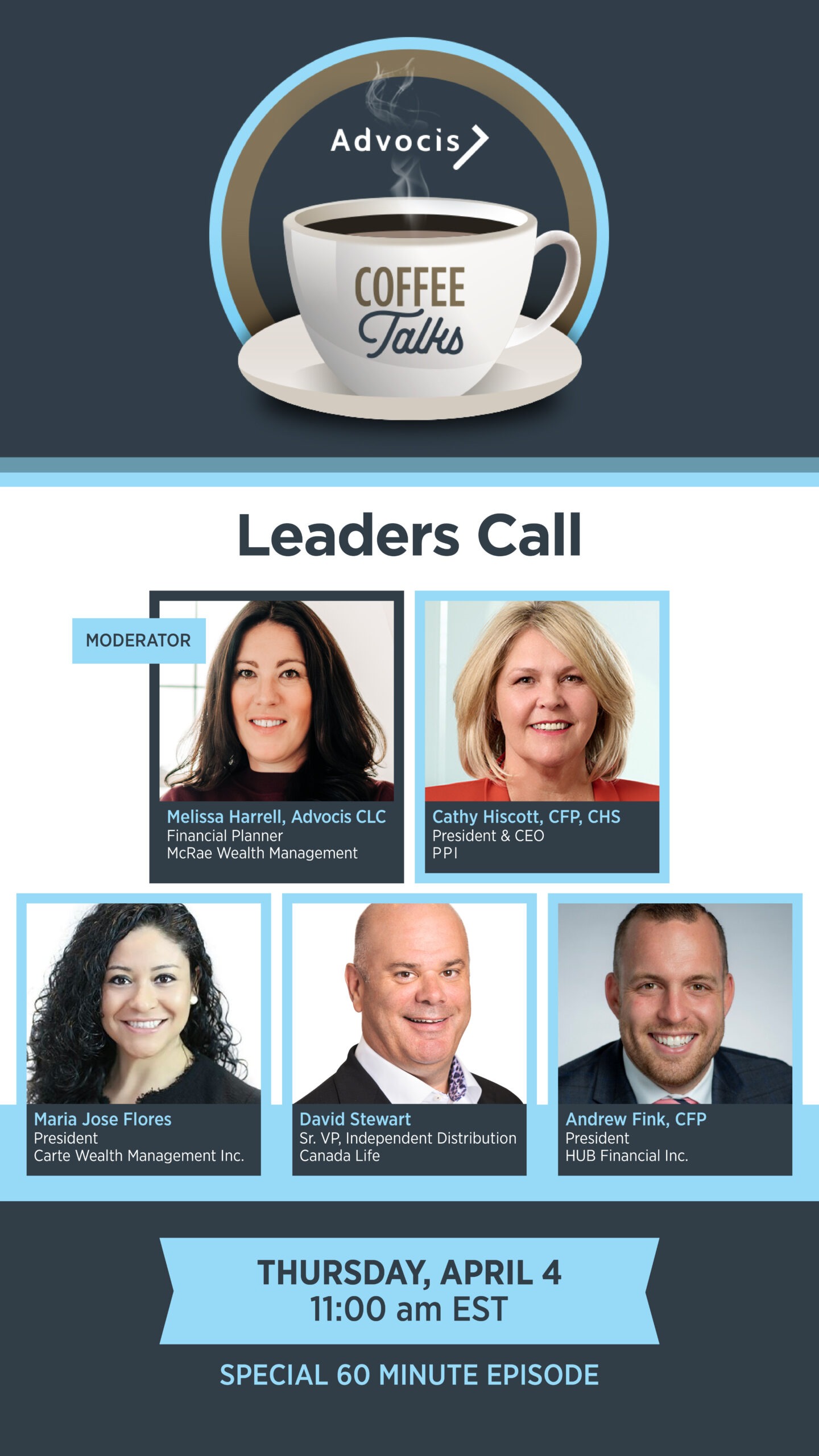Leo Almazora, Wealth Professional Canada
2020 was a year like no other, marked by seismic changes to society and people’s lives left by the COVID-19 pandemic. And while the rollout of vaccines offers an opening for the world to move on and recover, aftershocks of cases are pushing governments to impose continued lockdowns.
Understandably, a lot of people are frustrated with the continued imposition of stay-in-place orders. But on the bright side, people stuck at home with nothing else to do can take the chance to reflect and take stock.
That was the kind of thinking that inspired a recent survey of financial professionals. The Financial Advisors Association of Canada, Advocis, polled its membership to answer one overarching question: what were the financial decisions – good and bad – that Canadians made over the course of the past year amid the pandemic?
“As a large membership association of financial advisors here in Canada, we knew that we were in a unique position to understand the biggest financial challenges and the opportunities Canadians had to face during COVID,” Greg Pollock, president and CEO of Advocis, said in an interview with Wealth Professional. “Our members are professionals that Canadians turn to when they face life-changing turning points like this, so it just made natural sense.”
The results of the survey were released to coincide with a spring cleaning-themed update of Advocis’s financial literacy website, Financial Advice for All. On its site, the organization emphasized the role its members can play to help clients get their finances in order, particularly during tax time after a very unusual year.
One area that made 2020 particularly notable was the drastic digital shift people have made in their lives. In many ways, it was a beneficial development as it allowed countless individuals to continue working, stay in school, and generally keep in touch with loved ones. It also helped clients reach out proactively to their advisors, as well as take steps to establish emergency funds.
But the sharp adjustment to virtual life has also given rise to some non-ideal habits. “One thing that respondents commented on was overspending on conveniences,” Pollock said. “Our members are telling us about how their clients were ordering groceries excessively, and getting food delivered to their doorstep just by pressing a button. These costs add up, and a lot of people don’t realize the impact online purchases can have on household budgets, particularly if they solidify into a habit.”
Quick tech-enabled transactions also proved detrimental to a lot of Canadian investors, particularly during the meltdown that occurred during February and March of 2020. The ensuing wave of panic selling was understandable, but a lot of self-directed investors who wanted to cut their losses ended up crystallizing them as the stock market corrected and rebounded over the next few months.
“Financial advisors were there to hold their clients’ hands through that difficult time,” Pollock said. “Frankly, things turned out better than anyone could have imagined for Canadians with advisors to help them stick to their guns.”
Another ill-advised move, Pollock said, was from people dipping into their savings unnecessarily. Faced with violent market gyrations, sudden job or business uncertainty, and unexpected expenses, many heads of households were compelled to make redemptions and withdrawals. Unfortunately, some went overboard and used money that could have been better left alone or diverted towards other ways and means to support themselves.
“A lot of people were able to apply for government relief programs, of course, but I think some people needed more assistance,” Pollock said. “There were so many announcements coming out from the government every day that the public had difficulty in keeping up with it all. Our members were there to help their clients through that.”
For advisors, the COVID-19 pandemic has been an emergency that called for an all-hands-on-deck response. It wasn’t a time to wait for people to call; it was time to proactively make contact. Whether it was by email, telephone, or Zoom, Pollock said advisors were reaching out and asking clients questions around COVID-19, how they felt about the markets, what’s been happening with their family situations, and how their employment and income situations have been impacted.
“In many ways, they helped calm many fears that were out there, providing reassurance that the clients have done their best to prepare for a market correction,” Pollock said. “It’s an emotional roller coaster out there for these clients. In a sense, the advisor’s role was simple, and that was to reassure clients on the verge of making fear-driven decisions and create a dialogue that would lead to reasoned outcomes.”
Just as medical frontline workers assessed people’s state of health, advisors have provided invaluable guidance by helping clients go over their financial affairs. For the worst-hit, it’s been largely about debt management; for the better-off, there’s been more leeway to do housekeeping with respect to investments, retirement accounts, and other funds to ensure that they were properly aligned.
While the final impact of the pandemic on Canadians’ finances remains to be seen, it will almost certainly reshape people’s attitudes and behaviours with respect to money. One repercussion, Pollock said, is lingering financial stress as people’s pre-existing concerns around money get magnified by the pandemic. Physical and mental stressors, he added, could continue to be present and exacerbate feelings of financial anxiety.
“There’s also the whole issue of retirement, planning for old age, and how to write your life story,” Pollock said. “I think the way we talk about that, particularly with younger Canadians, may be different moving forward.”
As for the Canadian financial advice industry, Pollock said the pandemic has reaffirmed advisors’ role as a constant source of guidance. After a years-long trend of commodification of investment management, people have grown to think of advisors’ fees as a cost while discounting the benefits of advice. But in a post-COVID world, finding new business will likely not be as challenging for many advisors as consumers become more open to learning about products and strategies to help them manage the ups and downs of life.
“People would be so well served by having the advice of an external individual, and having someone to listen and understand what they’re going through,” Pollock said. “It would help relieve so much of the unknowns, so much stress … it’s hard to estimate how big that is.”








